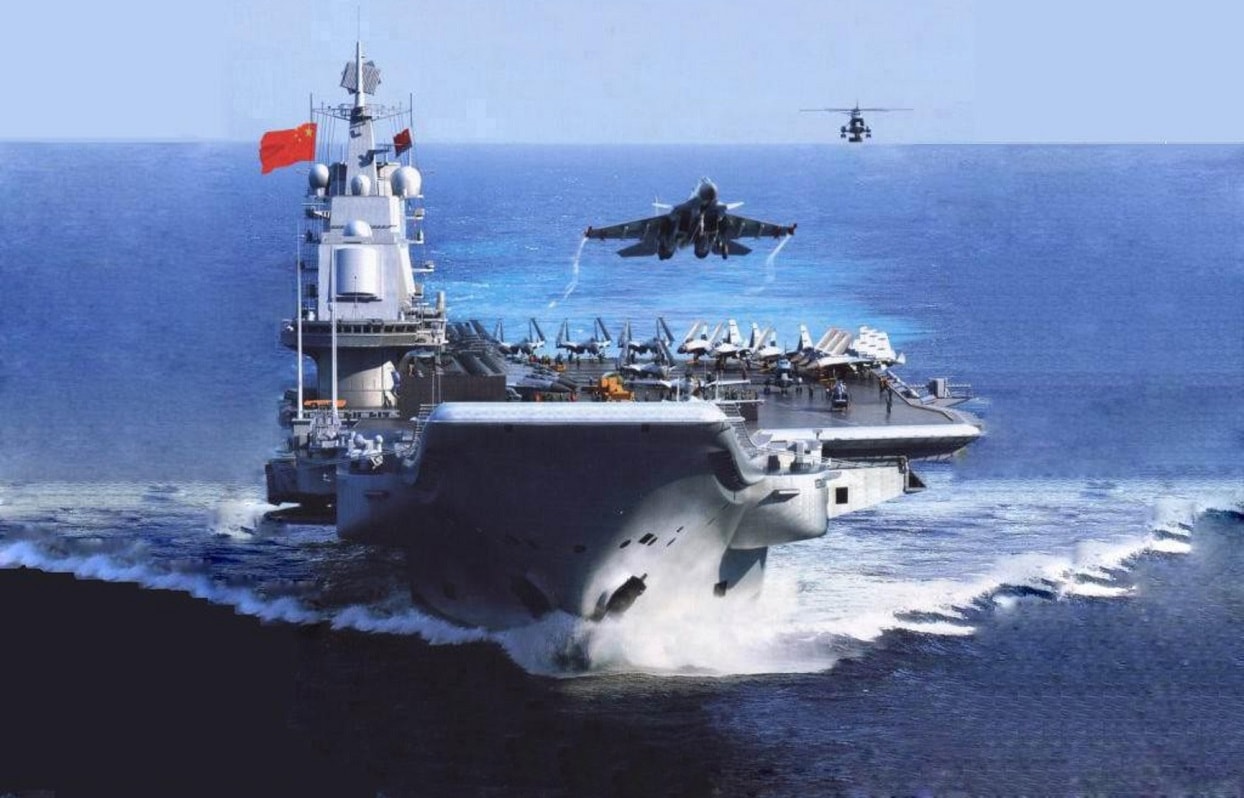China’s People’s Liberation Army (PLA) will never allow an independent Taiwan, a policy that is in line with Beijing, which sees the self-ruling island as a breakaway province that will be returned to mainland control and by force if necessary.
“The Taiwan issue is at the heart of China’s key interests and the One China principle is the general consensus of the international community,” said Colonel General Zhang Youxia, vice chairman of China’s Central Military Commission, at the Tenth Beijing Xiangshan Forum on Security that began on Sunday.
“No matter who tries to somehow separate Taiwan from China, the Chinese military will never let it happen,” the senior military official added.
The event has become China’s largest annual show of military diplomacy, and it used this year’s forum to promote President Xi Jinping’s vision for the future of the world, while Beijing has also sought to draw developing countries closer, as it faces increased coordination between the United States and its regional allies to curtail its military ambitions.
Despite that latter fact, the U.S. Department of Defense (DoD) sent a delegation led by Xanthi Carras, China country director in the Office of the Undersecretary of Defense, Reuters reported.
The theme of the Tenth Xiangshan Forum on Security, which concluded on Tuesday, was “Common Security, Lasting Peace.” It saw official delegations of researchers and diplomats from more than 90 countries, and participants exchanged views on global and regional security with a focus on Asia, the Middle East, and Europe.
The Taiwan Question – Can It Be Resolved?
Zhang further called for all countries to respect each other’s sovereignty, territorial integrity, and basic interests, while he said that it was unacceptable “to ensure one’s security through the insecurity of others and deliberate provocations against other countries on issues that they find sensitive.”
During the forum, PLA Lieutenant General Hé Léi told state media Global Times that any Chinese use of force around Taiwan would be legitimate and just.
“Once the Chinese government is forced to use force to resolve the Taiwan question, it will be a war for reunification, a just and legitimate war supported and participated in by the Chinese people, and a war to crush foreign interference,” Hé explained, reaffirming the views that he told Chinese state media outlet CGTN in a separate interview.
“The United States must resolutely correct any behavior that interferes in China’s internal affairs and undermines China’s core interests, especially when it comes to the Taiwan issue and the South China Sea issue,” Hé told CGTN.
Taiwan has been governed by its local administration since 1949 when the remaining Kuomintang forces led by Chiang Kai-shek (1887-1975) fled to the island at the end of the Chinese Civil War. Since then, Taiwan has preserved the flag and some other symbols of the Republic of China that had existed with the mainland government before the Communists came to power.
Despite its claim that Taiwan is a breakaway province, Beijing has never actually controlled the island. It was ceded to Japan at the end of the First Sino-Japanese War in 1985 by the treaty of Shimonoseki. Control was returned to the Republic of China in October 1945 – while the Treaty of Taipei in 1952 recognized that all treaties concluded before December 1941 between China and Japan became null and void.
The United States does not have diplomatic relations with Taiwan, but there is a “robust unofficial relationship” according to the State Department.
As previously reported, this has raised the question as to whether China is actually a country. Regardless, it would seem that Washington is ready to stand with Taipei, much to the ire of Beijing.
Author Experience and Expertise
A Senior Editor for 19FortyFive, Peter Suciu is a Michigan-based writer. He has contributed to more than four dozen magazines, newspapers, and websites with over 3,200 published pieces over a twenty-year career in journalism. He regularly writes about military hardware, firearms history, cybersecurity, politics, and international affairs. Peter is also a Contributing Writer for Forbes and Clearance Jobs. You can follow him on Twitter: @PeterSuciu.
From the Vault

